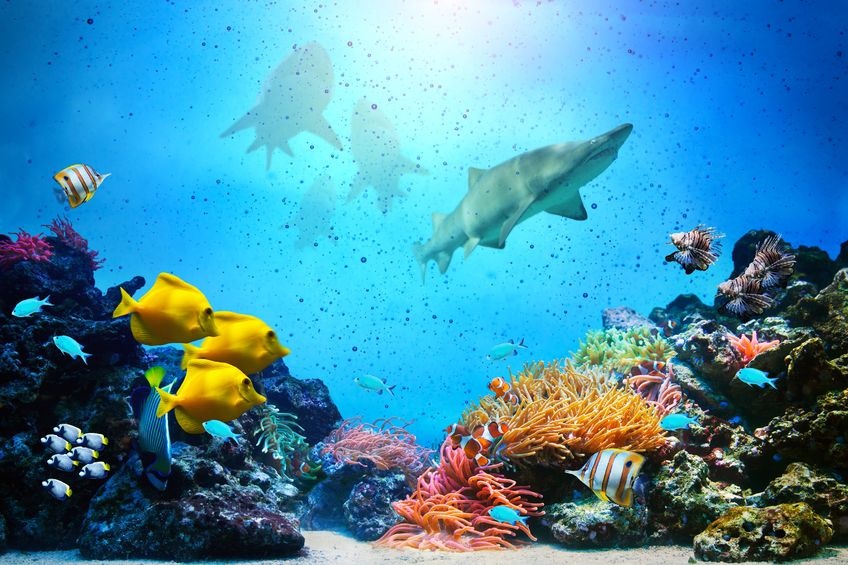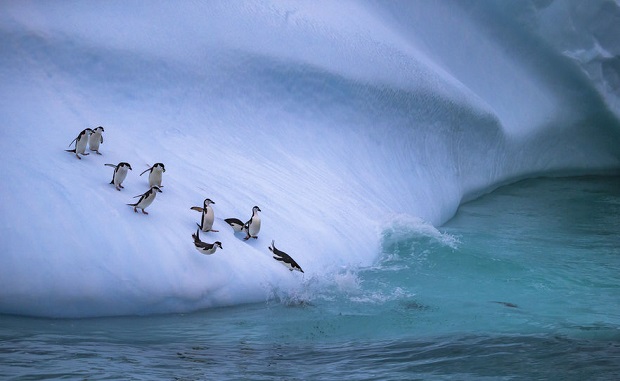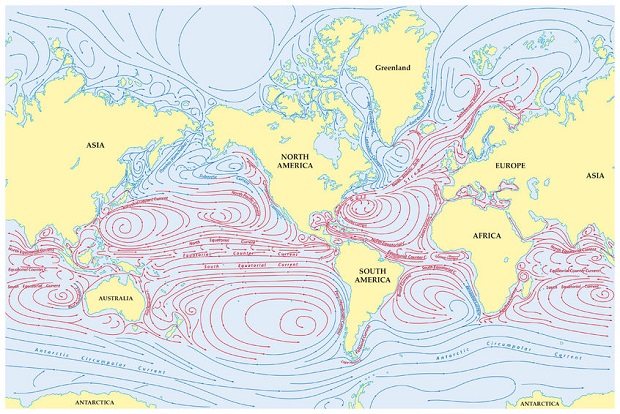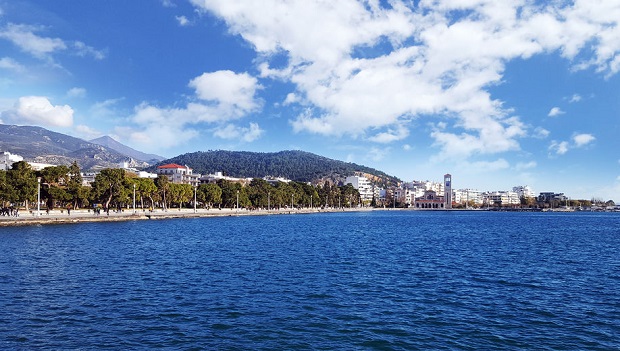
Why Is the Ocean Salty?
The salt in oceans, comprised of sodium and chloride, is the product of the erosion of landmasses. Landmasses also surround lakes and rivers, so why aren’t they salty? Here’s how the process works.
Jump Ahead
- Weathering and Erosion Play a Major Role in Ocean Salinity
- Why Are Oceans Salty but not Lakes?
- Factors Affecting Ocean Salinity Concentrations
- Resources
Weathering and Erosion Play a Major Role in Ocean Salinity
Most rocks that form landmasses are composed of a variety of minerals. Among them are sodium and chloride, which together make the compound commonly known as salt. [1] There are a variety of forces that can break down rock and are known collectively as weathering. Chemical weathering involves chemical reactions between rocks and outside forces such as wind and water. Physical weathering occurs through mechanical forces such as freezing, thawing, or rock fracturing. [2] Once the rock has been broken down, it is carried away by the process called erosion.
Why Are Oceans Salty but not Lakes?
Lakes and rivers receive sediment from broken-down rock that includes sodium and chloride and, in fact, contain salt just like the oceans, but there is a major difference. Lakes and rivers usually have outlets that eventually empty into the sea, carrying with them the minerals deposited through erosion, such as salt that ends up in the ocean. Lakes that don’t have outlets, like the Great Salt Lake or the Dead Sea, are salty. [3]
Broadly speaking, the average hydraulic residence of a lake (the average time that water spends in a lake) is five years. This number alters dramatically under certain circumstances, such as the presence of large river channels (or lack thereof) that will flush a lake more quickly, size, etc. This doesn’t leave much time for the salt content to amass since freshwater constantly dilutes the water. [4]
On the other hand, the ocean’s water is about 1,000 years old. So, all of the runoff from all of the lakes and streams worldwide that have dumped sodium chloride sediment into the ocean has had more than 1,000 years to amass. [5]
Factors Affecting Ocean Salinity Concentrations
The average salinity of seawater is 35 parts per thousand. (35 o/oo). But some seas, like the Red Sea and the Persian Gulf, have a higher salt content while others, like the water of the Arctic Sea, have less. The factors affecting the salinity levels of a body of water include evaporation rate, rainfall, and ice melting. [6]
Evaporation Rate. The basic ecological process of evaporation also contributes mightily to the saltwater content in our oceans. When placid ocean water is heated by the sun and turned into gaseous water vapor, the pure H2O evaporates, but its salt content is left behind. This process is why bodies of water in hot, arid regions, such as the Red Sea and the Persian Gulf, have higher salinity levels. High water temperatures lead to higher evaporation rates and higher salinity readings. [7]
Rainfall. In tropical areas, abundant rainfall will lower the salinity concentration of surrounding oceans where freshwater rainfall exceeds evaporation. [8]
Ice Melting. Melting ice like that in the Arctic regions will have the same effect on salinity as abundant rainfall. [9]
Resources
- [1] PhysicalGeography.net – “Introduction to the Lithosphere – Composition of Rocks.”
- [2] The University of Houston – “Weathering and Soil.”
- [3] Cornell University – Ask an Astronomer – “Why Is Seawater Salty and not Lake Water?”
- [4] Messager, Mathis L. “Estimating the volume and age of water stored in global lakes using a geostatistical approach.” Nature Communications.
- [5] Carilli, Jessica. “How Old Is the Ocean?” Nature Communications.
- [6] Schwarzenbach, Renee’ P. et al. “Environmental Organic Chemistry.” Wiley Blackwell. 2016. Print
- [7] The National Weather Service. National Oceanic and Atmosphere Administration – “Sea Water.”
- [8][9] NASA Science – “Salinity.”








